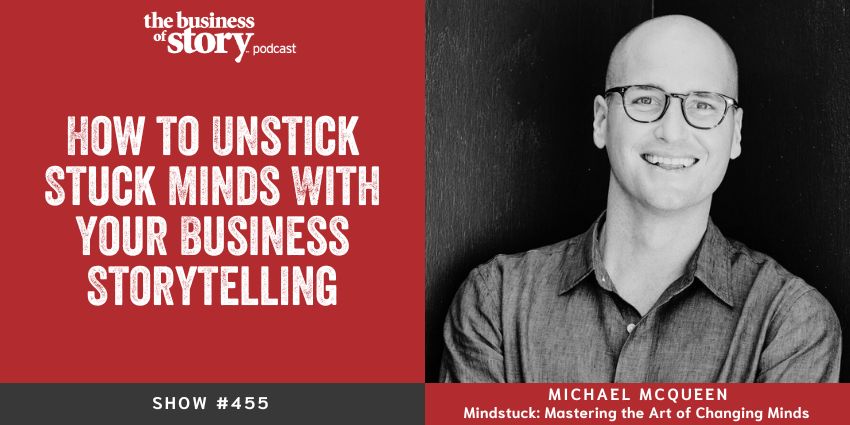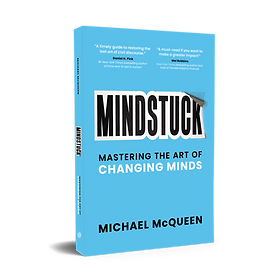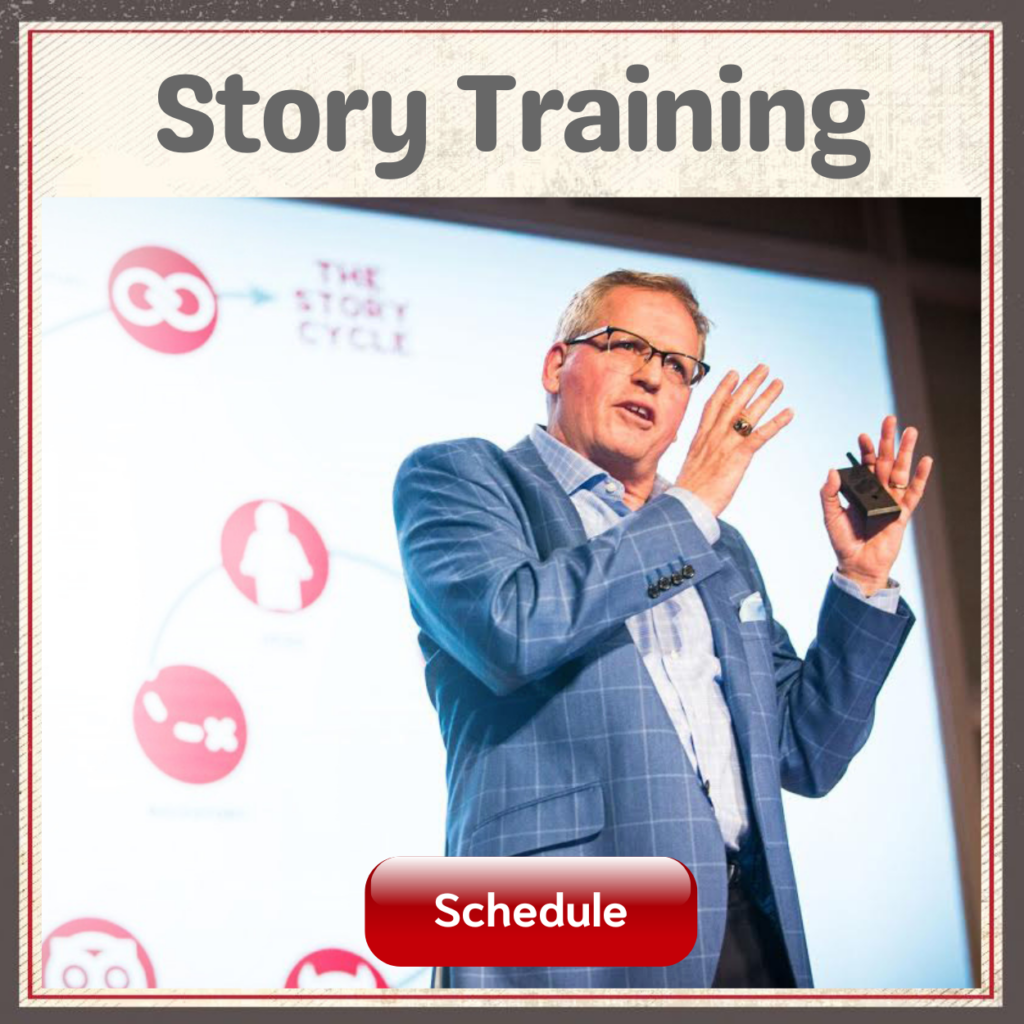
#455: How to Unstick Stuck Minds With Your Business Storytelling
Have you ever found yourself trying to convince a person who is stubbornly opposed to your position on a subject or your mindset?
But the conversation faltered because their values and beliefs seemed to be impenetrable, your argument was crushed and perhaps so too was your relationship.

Michael McQueen, Change Strategist and author of Mindstuck: Mastering the Art of Changing Minds, shares how to persuade even your most obnoxious audiences with proven storytelling tips.
Michael McQueen is a multi-award-winning speaker, change strategist, and bestselling author of 10 books.
He has spent the past two decades helping organizations and leaders win the battle for relevance. From Fortune 500 brands to government agencies and not-for-profits, Michael specializes in helping clients navigate disruption and stay one step ahead of change.
Today we’ll explore why speaking to the mind matters. While it is tempting to opt for cold, hard facts and logic, the part of our brain that actually makes up our minds does not respond to these. It responds to emotional stories.
Why it’s important to affirm and disarm to preserve the other’s dignity in your discussion. You’ll learn why it’s important to separate people from their opinions and lead with vulnerability.
And finally, don’t be in it to win it – This third important point centers on the importance of not seeing our opponents as our enemies and rediscovering the lost art of disagreeing with others without being disagreeable. True persuasion happens when we start with a posture of openness and humility and prioritize the dignity and agency of those we are seeking to influence.
Discussed in this episode:
- Curiosity is a crucial trait for navigating stubbornness and changing minds.
- Humility and an appreciation for nuance are essential in developing ideas and understanding different perspectives.
- Identity, ideology, and intuition play significant roles in shaping our beliefs and influencing our ability to accept new information.
- Labels and polarization can hinder productive conversations and prevent understanding and empathy. Create space for dialogue and listen to others to foster productive conversations.
- Emotion plays a significant role in persuasion, and appealing to the heart can be more effective than relying solely on logic and reason.
- When trying to persuade someone, consider their fear of loss and find ways to address their concerns and maintain their dignity.
- Building trust and affinity is crucial in persuasion, and techniques such as self-deprecation and unselling can help establish credibility.
- Practicing persuasion skills and seeking feedback can improve one’s ability to influence others.
- Social proof, or the influence of others’ actions, can be a powerful tool in persuasion.
Chapters:
- 00:00 Introduction and Background
- 01:17 Becoming a Change Strategist
- 06:28 Expanding Research Scope
- 07:18 The Inspiration for ‘Mind Stuck’
- 09:03 The Challenge of Uncertainty
- 10:30 The Importance of Curiosity
- 12:39 The Value of Humility
- 13:26 Identity, Ideology, and Intuition
- 16:08 Navigating Labels and Polarization
- 21:15 The Importance of Listening
- 22:21 The Power of Emotion in Persuasion
- 23:16 Persuading People to Change Their Minds
- 26:41 Persuading People to Drink Recycled Water
- 27:35 Simplifying Language for Effective Communication
- 28:14 Overcoming Fear and Tribalism in Communication
- 29:28 Building Trust and Affinity
- 31:38 Practicing Persuasion Skills
- 37:19 The Power of Social Proof
Links:
- Here’s your FREE chapter of Mindstuck
- Mindstuck: Mastering the Art of Changing Stubborn Minds
- MichaelMcQueen.net
- Michael McQueen on LinkedIn
- Michael on Instagram
- Michael on Facebook
Popular Related Episodes You’ll Love:
- #120: The Magic Words That Make Your Business Storytelling More Persuasive with Phil Jones
- #389: The Art of Soulful Persuaions Through Brand Storytelling with Jason Harris
- #359: How Body Language and Voice Skills Make Your Stories Sing with Richard Newman
Your Storytelling Resources:
Connect with me:
- Instagram: https://www.instagram.com/parkhowell/
- Facebook: https://www.facebook.com/groups/BusinessOfStory
- YouTube: https://www.youtube.com/channel/UC0ssjBuBiQjG9PHRgq4Fu6A
- Twitter: https://twitter.com/ParkHowell
- LinkedIn: https://www.linkedin.com/in/parkhowell/
- Website: https://businessofstory.com/abt/
#StoryOn!
 Listen To More Episodes
Listen To More Episodes











